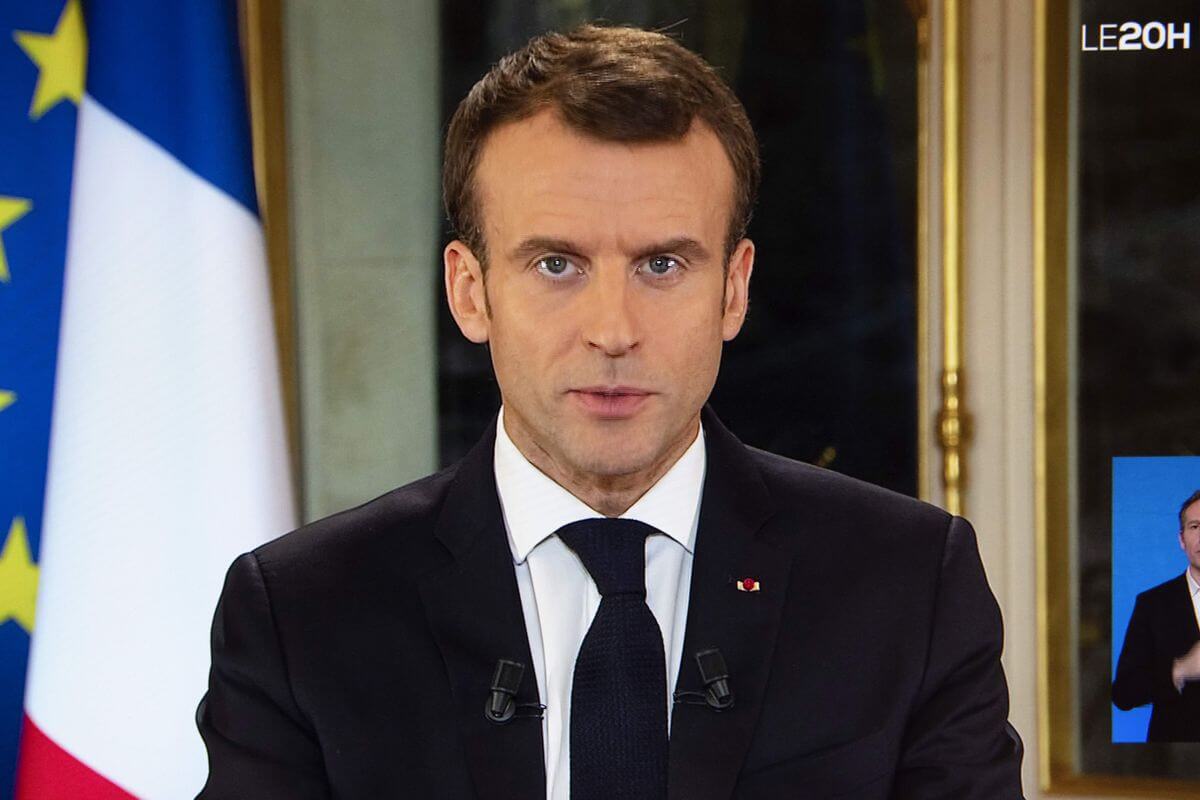On Thursday, France and its allies announced the coordinated withdrawal of their forces deployed for the Operation Barkhane and Takuba missions amid tense relations with Mali’s ruling junta.
JUST IN: President Macron is live, alongside Macky Sall of Senegal; Nana Akufo-Addo of Ghana. He has announced the withdrawal of French troops from Mali.
— Mayowa Tijani (@OluwamayowaTJ) February 17, 2022
A joint statement signed by France and its African and European allies said, “Due to multiple obstructions by the Malian transitional authorities, Canada and the European States operating alongside Operation Barkhane and within the Task Force Takuba deem that the political, operational and legal conditions are no longer met to effectively continue their current military engagement in the fight against terrorism in Mali.”
During a press conference held ahead of the European Union-African Union (EU-AU) summit, French President Emmanuel Macron said, “We cannot remain militarily engaged alongside de-facto authorities whose strategy and hidden aims we do not share.”
Macron added that military withdrawal from France does not indicate that the mission was a failure and said that the anti-insurgency operation would continue from other countries. “The heart of this military operation will no longer be in Mali but in Niger,” he said. Reportedly, the French Sabre special forces will remain deployed in Burkina Faso. Furthermore, Macron said it would ally with its regional allies, Niger and Chad, where France maintains military bases, to fight jihadist insurgents.
Conditions are no longer in place to continue the fight against militants in Mali and President Emmanuel Macron has asked to reorganise French troops in region, FM Jean-Yves Le Drian says pic.twitter.com/GXxBypKXMf
— TRT World Now (@TRTWorldNow) February 14, 2022
The approximately 2,400 French soldiers deployed in Mali will leave the country in four to six months, but Macron remains wary of Afghanistan-like chaos following the departure of the United States (US). He warned that the Islamic State (IS) and Al-Qaeda have made West Africa’s Sahel region and the Gulf of Guinea nations a top priority for their expansion plan. This is particularly concerning for Macron as France heads for presidential elections in April this year, though he is yet to officially declare his candidacy.
Meanwhile, African leaders warned of their inability to fight anti-insurgency independently. Senegalese President Macky Sall said, “We have agreed with Europe that the struggle against terrorism in the Sahel cannot be the business of African countries alone, there’s a consensus on this.” Likewise, on Wednesday, Ivorian President Alassane Ouattara said the departure of troops would create a void.
The United Nations (UN) said the troop withdrawal is likely to affect the 14,000 peacekeepers deployed in Mali for the MINUSMA mission, which was started in 2013, to support Mali and its neighbouring countries to contain jihadist insurgency.
Meanwhile, Mali’s foreign minister, Abdoulaye Diop, said, “European security partners were still welcome in Mali, but each country would now have to arrange its own bilateral agreement with the government and focus on building up Mali’s armed forces.”
While covering this crisis, the French newspaper Le Monde wrote, “It is an inglorious end to an armed intervention that began in euphoria and which ends, nine years later, against a backdrop of crisis between Mali and France.”
Earlier, Paris had announced its plan to increase its reliance on the Takuba Task Force, a European military unit, to reduce pressure on the French military.
The latest announcements come against the backdrop of tense relations between Mali and France and a sustained period of instability in the Sahel nation. In May 2021, Malian Colonel Assimi Goïta, who led the coup in August 2020 that deposed President Ibrahim Boubacar Keïta and Prime Minister (PM) Boubou Cissé, dismissed and detained their replacements, President Bah N’Daw and Prime Minister Moctar Ouane.
After the August 2020 military coup, the international community set February 2022 as the deadline for democratic elections in Mali following the end of an 18-month transitional period. However, the junta has announced a delay to this timetable and said it will continue to hold power until 2025. Moreover, increasing anti-French sentiment in the Sahel and the expulsion of the French ambassador to Mali in January this year have added to the growing hostility.
France first deployed troops to the region on January 11, 2013, when the Malian government asked for help to block the advances of jihadists and Tuareg towards the capital, Bamako. In 2014, France launched Operation Barkhane, deploying 5,500 soldiers to Mali, Niger, and Chad in partnership with Mauritania, Mali, Burkina Faso, Niger, and Chad. Jihadist attacks have become more frequent since 2013, with the conflict spilling over in neighbouring Niger and Burkina Faso, contributing to an acute humanitarian crisis.
According to the French defence ministry, Operation Barkhane has three military bases in Mali—in Gao, Menaka, and Gossi. Outside Mali, France also has military bases in Niamey, Niger and N’Djamena, and Chad.
In the last quarter of 2021, French forces were recalled from Kidal, Tessalit and Timbuktu. Consequently, in January 2022, mercenaries from Russia’s Wagner Group moved into the Timbuktu camp.
Both the EU and the United States have been opposed the presence of Russian mercenaries in Mali. France has condemned the deployment of Wagner troops in the country and said that the presence of “predatory” private mercenaries in the country will lead to regional instability.
The Wagner group has been deploying mercenaries to several African countries, including the Central African Republic, Libya, Madagascar, Mozambique, and Sudan. Regional governments have offered the group money and lucrative deals to extract their country’s natural resources in return for help in combating local insurgencies.
Meanwhile, Macron announced the withdrawal of French troops from #Mali, after 10 years of fighting jihadists, who have now spread across the Sahel region of Africa. The Russian private military company Wagner Group has already arrived in Mali.
— Stanly Johny (@johnstanly) February 17, 2022
Nevertheless, the countries at the Brussels summit reaffirmed their commitment to continue counterterrorism operations in the Sahel region and expressed willingness to continue dialogue with Mali’s transition authorities.

